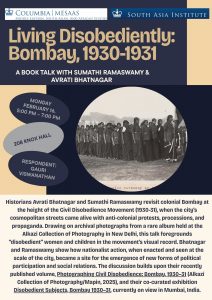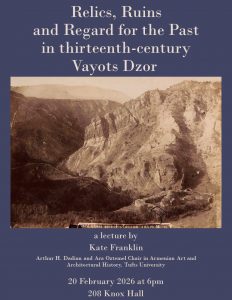WELCOME TO MESAAS
WELCOME TO MESAAS
WELCOME TO MESAAS
WELCOME TO MESAAS
- Language Placement Exams Spring 2026January 16, 2026
- Call for Papers-2026 MESAAS Graduate Student ConferenceJanuary 12, 2026
- Khatchig Mouradian awarded 2025 HAVI grant by Schmidt SciencesDecember 15, 2025
- MESAAS Courses Spring 2026November 21, 2025
- New MESAAS Courses for Spring 2026November 18, 2025
february 2026
27feb2:00 pm- 4:00 pmBook Talk: Radical Separation of Powers by Wael Hallaq
Event Details
Two centuries of Orientalist scholarship have denied that Islam has a constitutional concept. Premodern Islamic political practice has been subject to mistranslation, misinterpretation and condescension through the eyes of colonisers,
more
Event Details
Two centuries of Orientalist scholarship have denied that Islam has a constitutional concept. Premodern Islamic political practice has been subject to mistranslation, misinterpretation and condescension through the eyes of colonisers, and judged inferior to the norms of Western liberalism. Wael Hallaq, a leading scholar of Islamic law, sets the record straight in this groundbreaking volume. Traumatised by the tyranny of absolute monarchies, Europe came to see in Islam everything that it despised about itself. By seeking to understand Islamic governance from within its own tradition of reason, Hallaq reveals premodern Islam to have a rich and distinctive constitutional tradition: starting from the individual as a political subject up to the power of executives.
For more information, click here: https://oneworld-publications.com/work/radical-separation-of-powers/
Time
(Friday) 2:00 pm - 4:00 pm
Location
509 Knox
606 West 122nd St
march 2026
27mar2:00 pm- 4:00 pmBook Talk: Handbook of the Late Ottoman Empire co-edited by Khatchig Mouradian
Event Details
The I.B. Tauris Handbook of the Late Ottoman Empire: History and Legacy, co-edited by Hans-Lukas Kieser and Khatchig Mouradian, was published by Bloomsbury in November 2025. Bringing together contributions from fifty
more
Event Details
The I.B. Tauris Handbook of the Late Ottoman Empire: History and Legacy, co-edited by Hans-Lukas Kieser and Khatchig Mouradian, was published by Bloomsbury in November 2025. Bringing together contributions from fifty established and emerging scholars, the volume surveys the rich body of research produced in recent decades on the late Ottoman period and its enduring legacies. Organized into seven chronological sections and comprising thirty-four chapters and eight supplementary essays, the 792-page handbook guides readers from the late eighteenth century through the early twenty-first century.
For more information, click here: https://www.bloomsbury.com/us/ib-tauris-handbook-of-the-late-ottoman-empire-9780755644490/
Time
(Friday) 2:00 pm - 4:00 pm
april 2026
23apr - 24apr 239:00 amapr 24MESAAS Graduate Student Conference 2026
Event Details
The Department of Middle Eastern, South Asian, and African Studies at Columbia University is pleased to invite academic essays from graduate students
more
Event Details
The Department of Middle Eastern, South Asian, and African Studies at Columbia University is pleased to invite academic essays from graduate students and early career scholars from across universities and departments for the 2026 Graduate Conference to be held on the 23rd and 24th of April 2026. The annual MESAAS graduate conference has been an enriching space for scholars, activists, and artists to confront and examine issues of political, social, and ethical concern that connect regions of the global south. This year, our conference invites abstracts for the theme, (Re)Tracing Land in the Middle East, South Asia, and Africa.
Time
23 (Thursday) 9:00 am - 24 (Friday) 7:00 pm
Location
208 Knox Hall
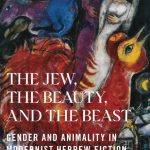 The Jew, the Beauty, and the Beast by Naama Harel published by Rutgers University Press
The Jew, the Beauty, and the Beast by Naama Harel published by Rutgers University Press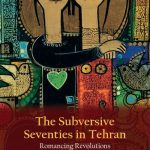 The Subversive Seventies in Tehran by Hamid Dabashi published by Edinburgh University Press
The Subversive Seventies in Tehran by Hamid Dabashi published by Edinburgh University Press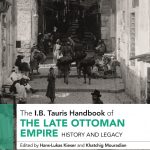 Handbook of the Late Ottoman Empire co-edited by Khatchig Mouradian published by Bloomsbury
Handbook of the Late Ottoman Empire co-edited by Khatchig Mouradian published by Bloomsbury Radical Separation of Powers by Wael Hallaq published by Oneworld Press
Radical Separation of Powers by Wael Hallaq published by Oneworld Press Slow Poison by Mahmood Mamdani published by Harvard University Press
Slow Poison by Mahmood Mamdani published by Harvard University Press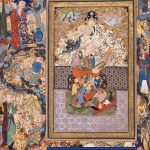 The Well-Tempered Reader by Sarah R. Bin Tyeer published by University of California Press
The Well-Tempered Reader by Sarah R. Bin Tyeer published by University of California Press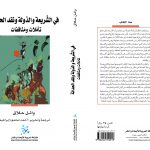 Sharia, State, and Critique of Modernity by Wael Hallaq published in Arabic
Sharia, State, and Critique of Modernity by Wael Hallaq published in Arabic Imagine a Nation by Hamid Dabashi published by Bloomsbury
Imagine a Nation by Hamid Dabashi published by Bloomsbury


